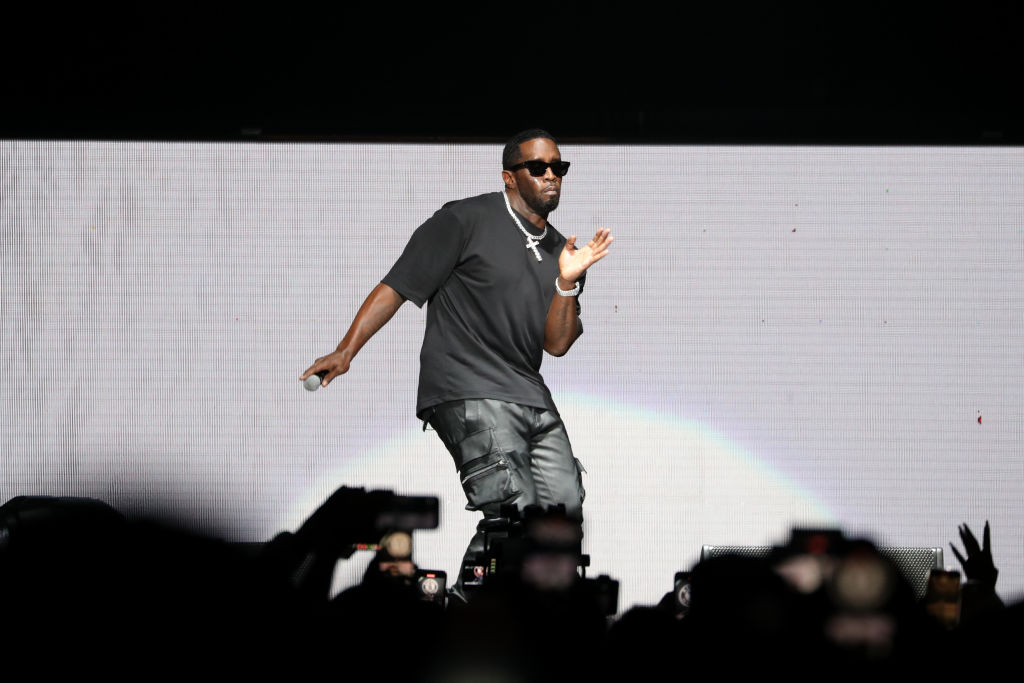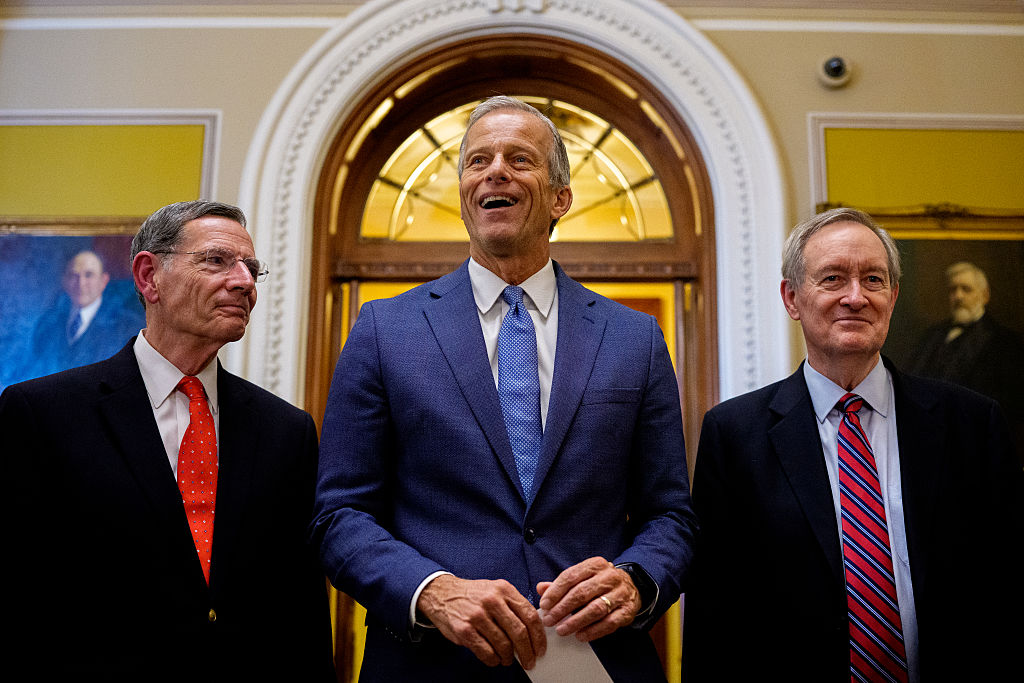Why Michael Shellenberger is taking on Gavin Newsom
Michael Shellenberger is an unusual political candidate. He’s also arguably the only person with a chance of stopping Gavin Newsom from spending four more years as governor of California.
A fifty-year-old environmentalist, Shellenberger is a former Democrat running for governor as an independent. And he has form when it comes to aiming leftwards. A self-styled ecomodernist, he has been a vociferous critic of the environmentalist movement, its insularity, economic illiteracy and fetish for scarcity. More recently, he has set his sights on the progressive approach to homelessness and addiction. In San Fransicko, a book published last year (read an extract we published in The Spectator here), Shellenberger details progressivism’s culpability for the homelessness and addiction crises that now dominate the streets of the city he has called home for thirty years.
It’s easy to dismiss Shellenberger’s bid for governor as a quixotic nonstarter. Only last year, Newsom won a handy victory in a recall election. In that race, Larry Elder — a resolutely conservative Los Angeles talk show host — emerged as Newsom’s main opponent. After an uneasy start to the campaign, the incumbent fended off the threat by painting Elder as a Trump clone at odds with the values of a state where registered Democrats outnumber Republicans two to one. Voters were told, ad nauseam, to oppose the “Republican recall.”
Shellenberger is, among other things, not a Republican, and therefore sidesteps Newsom’s lazy if effective go-to defense. And that, if nothing else, would make him a threatening opponent against Newsom in the general. First, though, he must make it through next week’s open primary and place in the top two ahead of the leading Republican candidate, Brian Dahle. In other words, before he can tackle what he sees as a vulnerable incumbent, he must leapfrog a California GOP that is a shadow of its former self. If he does that, what looked like a foregone conclusion of a re-election bid for Newsom will become something else: a test of what, if anything, can break the Democrats’ stranglehold on California politics. That might mean a tighter race. At the very least, it’ll mean a race worth watching.
I recently spoke to Shellenberger about his candidacy, the hyper-progressivism that he argues is destroying the state he loves and why the moderate middle don’t get the representation they deserve. Below is a transcript of the start of our conversation. The full interview is available here.
Why are you running for governor?
I’m running because I’m completely heartbroken by the humanitarian disaster on the streets. I think what’s occurring is immoral, unnecessary and a violation of basic human rights and human dignity. Young women with mental illness and drug addiction are being raped and killed. It’s completely unacceptable. Our cities are being destroyed and we’re destroying human life. I find the situation appalling and it makes me angry that the politicians have not just created this problem but made it worse and they’re continuing to make it worse, which scares me.
But I’m also inspired by California’s potential. I’m in love with the state. I moved here after college. It’s the greatest state in the greatest country in the world. Or at least it should be, or used to be. I really believe in human potential. That means we believe that people suffering mental illness or drug addiction can lead better lives, they can realize their potential. They don’t just need palliative care. They don’t just need to be treated like vegetables and fed methamphetamine and fentanyl every day as though they’re animals. That is what the policy of this state is. It’s what the agenda of our governor is. It’s appalling and sickening and it doesn’t need to be like that.
In late January I gave a speech in San Francisco. The mothers of homeless drug addicts were there. They’re my allies in a coalition that we’ve organized. They asked me if I would run and I said no. We all went out and had dinner afterwards and my wife spoke with them. The next morning Helen said she would support me running if there was support. I was then able to meet with several folks who assured me that there would be support for my run and I then decided to get into the race. The good news is that underdogs win when they are faster than their opponents and so we’ve moved quickly. We have this incredible team. The strategy is to build a movement and to document the depravity on the streets, first and foremost. And to offer a really comprehensive vision of how to solve the problem.
When it comes to the homelessness problem, where have things gone wrong? And what needs to be done?
The first thing is that they don’t enforce laws. They don’t enforce laws against people that they consider victims, which includes addicts and the mentally ill. And if you don’t enforce laws it turns out people don’t follow them and you don’t have functioning civilization. The second is that they have pursued a radical de-incarceration, de-policing and decriminalization agenda, which has removed penalties for many laws, including shoplifting $950 worth of goods, or possessing three grams of fentanyl and meth, enough to produce paranoid psychosis. And they’ve pursued a so-called housing first anti-shelter policy. So they’ve defunded the shelters. The governor himself has established that housing should be a right. That anybody who comes to San Francisco or Los Angeles should have their own apartment unit in those cities. That is the state policy. It is so ridiculous. It is shocking to even say that that is what the policy is, but that is what it is.
*** Sign up to receive the DC Diary in your inbox on weekdays ***
Another blow to the ACLU’s credibility
Among the many losers in the Amber Heard/Johnny Depp trial: the ACLU. The jury yesterday sided with Depp and found that Heard had defamed her ex-husband with allegations of domestic abuse in a 2018 Washington Post op-ed. The American Civil Liberties Union has more than a walk-on part in the sorry saga is the latest chapter in the decline of the once-great First-Amendment organization. Among the findings in the trial: that the op-ed in question wasn’t pitched to the Post by Heard, but by the ACLU. The organization also helped write the op-ed. During the trial, Terence Dougherty, the ACLU’s general council, said that Heard was made an “ambassador on women’s rights with a focus on gender-based violence” after she donated $3.5 million to the organization.
The ACLU long ago abandoned its apolitical insistence for free speech for all and has become yet another progressive non-profit, prioritizing the woke liturgy over what is supposed to be its core purpose. Its role in the Depp-Heard row shows just how compromised the organization has become.
Hinkley to go free
Ronald Reagan’s would-be assassin John Hinckley Jr has been granted unconditional release. Hinkley was found not guilty by insanity after the 1981 shooting outside the Washington Hilton that almost killed the president and left two others with permanent injuries. Ever since, he has been living in psychiatric hospitals and under various restrictions. But a federal judge in DC has allowed him to live free from any such constraints come June 15. Hinckley now maintains a YouTube channel where he posts videos of himself playing music. The Reagan Foundation said it was “both saddened and concerned” by the unconditional release.
What you should be reading today
Peter Van Buren: America has lost her Top Gun spirit
Douglas Murray: Not all masculinity is toxic
James Snell: Germany’s stinginess is betraying Ukraine
Peter Herman, Washington Post: DC gun seizures are soaring — but charges aren’t sticking
Karl Rove, Wall Street Journal: Biden has no plan to fight inflation
Katherine G. Abraham and Michael R. Strain, Politico magazine: Biden’s about to make a big mistake on student loans
Poll watch
President Biden job approval
Approve: 40 percent
Disapprove: 54.9 percent
Net approval: -14.9 (RCP Average)
American attitudes to Roe v. Wade
Would like to see decision completely overturned: 30 percent
Would not like to see decision completely overturned: 68 percent (WSJ/NORC)

























